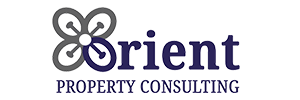As urbanisation accelerates and housing scarcity intensifies, the quest for suitable housing has become a pressing socio-economic concern for urban dwellers. In their pursuit of a home, many individuals rely on estate agents for guidance and support.
However, the loose regulatory framework in Ghana’s real estate sector has given rise to an abundance of informal agents operating outside the law – thereby creating a breeding ground for real estate scammers. To empower prospective tenants and buyers and shield them from falling victim to fraudulent schemes, this article delves into the realm of real estate scams; equipping readers with knowledge to distinguish legitimate agents from scammers and ensuring a safe and secure real estate experience.
Understanding real estate scams
Real estate scams involve the use of deceptive practices to fraudulently acquire properties or funds. These scams can occur at any stage of the real estate transaction, from listing through closing, and manifest in various forms. There have been numerous stories of individuals who have lost their hard-earned money to unscrupulous real estate agents.
Their prevalence has become a significant concern within Ghana’s real estate industry, making it imperative for individuals to exercise caution and vigilance to protect themselves from potential harm. This is especially important in a city like Accra, where it is nearly impossible to secure a place without engaging the services of an agent.
Effective strategies to avoid falling victim
By adopting the following strategies, home seekers can identify potential scams and protect themselves from becoming victims:
Conduct thorough research
One of the most effective ways to avoid real estate scams is to conduct extensive research before engaging with any agents or agencies. Leverage the power of the Internet to assess the reputation of a particular agency or agent. Read reviews and comments, especially on platforms like Google map, ‘JiJi’ and ‘meqasa’, to gauge the experiences of previous clients. Additionally, investigate whether any complaints have been lodged against the agent or agency, serving as red flags for potential scams.
Beware of upfront fees
Real estate scammers commonly operate by requesting upfront fees. Many estate agents capitalise on market competitiveness and demand upfront payments, claiming that these fees secure the property. However, they may abscond with the money or provide something different from what was paid for. A legitimate agent/agency will only charge a commission after a successful transaction has been completed. If an agent insists on upfront fees, this may be a sign of a scam. Hence, avoid such requests to reduce the risk of falling prey to scams.
Verify the property
When considering buying or renting a property, it is crucial to personally view it before making any commitments. As previously mentioned, scammers often use photos of properties that are not theirs, making it essential to assess the property’s condition and verify the legitimacy of the person showing you around. Prior to visiting the property, gather information such as about the address, listing details and other relevant documentation of the property. This will help you verify the property’s existence and prevent any misrepresentation.
Take notice of the agent’s behaviour
Observe the agent’s conduct during the viewing. Are they professional, knowledgeable and responsive to your questions? Pay attention to any red flags such as pressure tactics, inconsistent information or attempts to rush you into making a decision.
Exercise caution with unrealistically good deals
If a rent or asking price seems too good to be true, it probably is. Scammers often use significantly lower prices to lure unsuspecting home seekers. If the quoted or asking price is considerably lower than the average market rent or value, it warrants further investigation and caution. If you sense a foul deal, consider seeking assistance from a reputable agent or consulting a real estate professional for a second opinion. Remember, genuine deals are more likely to align with the average market rent or value.
Choose a reliable Estate Agent
It is crucial to engage a reputable and trusted real estate agent when seeking accommodation. To ensure you find a reliable agent, consider exploring various approaches.
One effective approach is by reaching out to friends to or acquaintances who reside in the desired area. They may make valuable recommendations and could share the contact information of an agent who assisted in securing their own property.
Additionally, if you know someone who recently rented or bought a house within that region, do not hesitate to inquire about the agent who facilitated their successful rental experience. Gathering first hand referrals from trusted sources can greatly enhance your chances of finding a competent and dependable estate agent – and also avoid being a victim of real estate scam.
Conclusion
In conclusion, real estate scams can inflict significant financial and emotional harm. However, with thorough research and cautious decision-making, individuals can protect themselves from falling victim. Always remain wary of demands for upfront fees, personally inspect the property, take notice of the agent’s behaviour, choose a reliable agent and remember that if a deal seems too good to be true, it probably is. By adopting these preventive measures, home seekers can navigate the real estate market with confidence and minimise the risk of falling prey to scams. A secure and fulfilling real estate experience awaits those who remain informed and vigilant.



